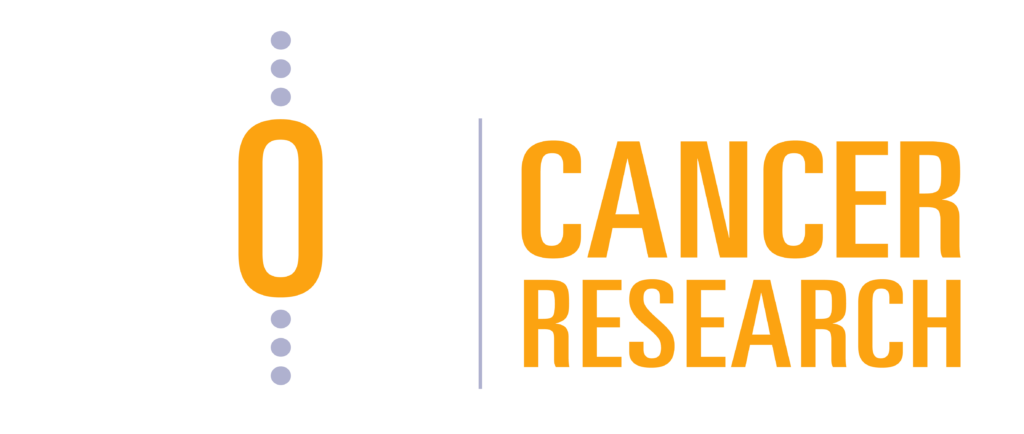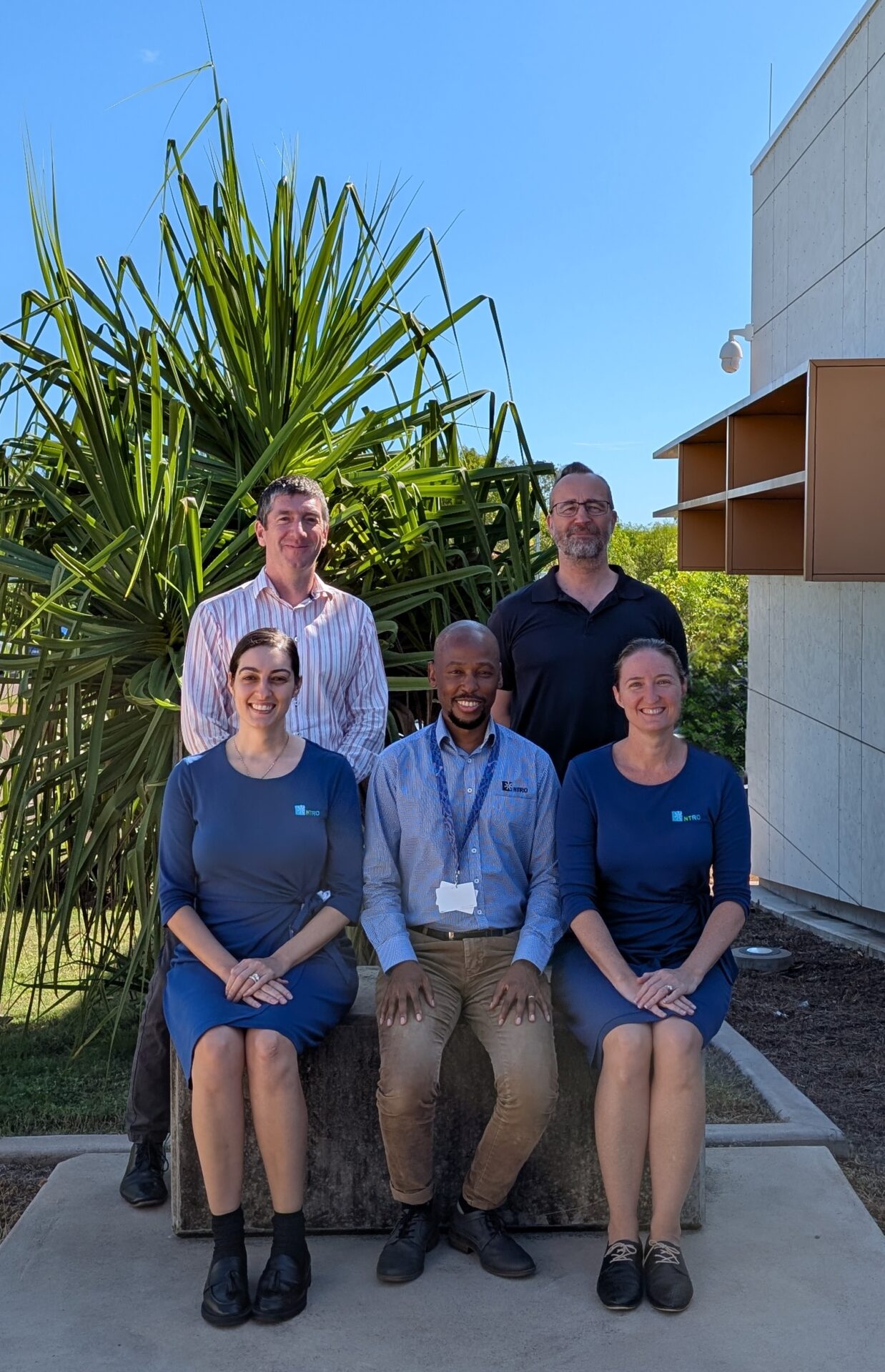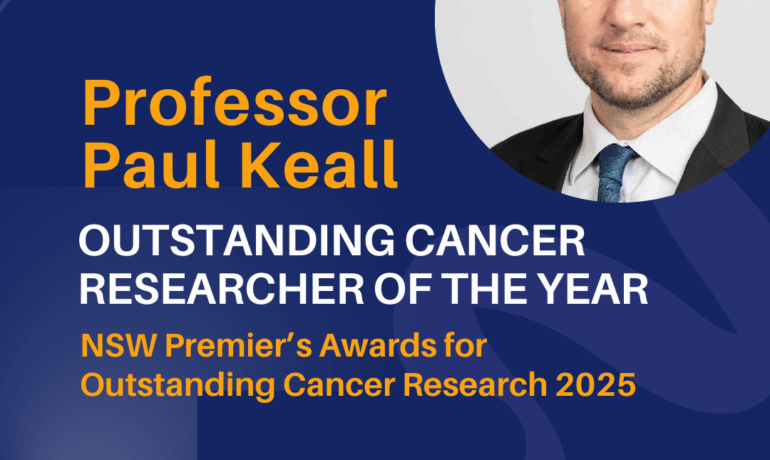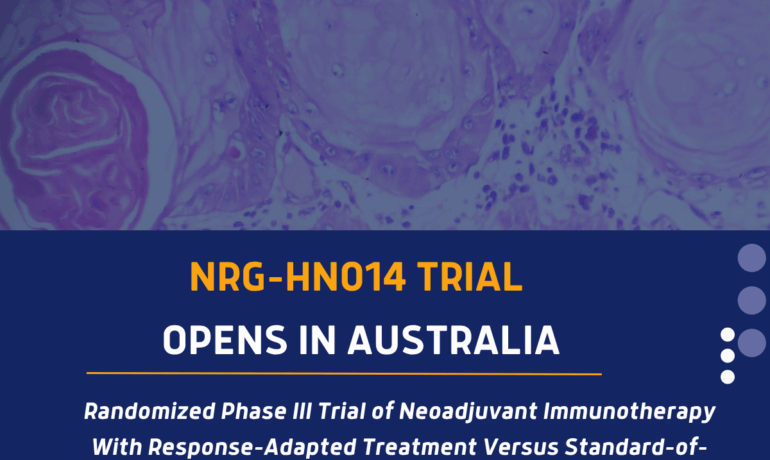LATEST NEWS: 5 JUNE 2025
The Alan Walker Cancer Care Centre (AWCCC) in the Northern Territory recently recruited the 300th participant to the Australian Particle Therapy Clinical Quality Registry (ASPIRE), in a milestone achievement amid a push to expand clinical research participation in rural and remote locations.
The ASPIRE Registry is a prospective, observational study of paediatric, adolescent, young adult and rare adult tumour patients. It enrols patients who have been treated with radiation therapy with the aim of better understanding and comparing the short and long-term benefits of the different types of radiation therapy – the more conventional photon treatment and future proton beam therapy (PBT) participants.
The Registry, which is funded by The Hospital Research Foundation Group, is led by the South Australian Health and Medical Research Institute (SAHMRI) and endorsed by the Trans Tasman Radiation Oncology Group (TROG) as a research study: the TROG 21.12 ASPIRE trial.
AWCCC Radiation Oncologist Dr Kenanao (Ken) Rantshilane (pictured in centre above, with the AWCCC team) said recruiting the 300th patient to ASPIRE was a major milestone for both their team and the broader research community.
“As a remote health facility, this achievement carries special significance and is testament to our ongoing commitment to provide equitable cancer care to all Australians, regardless of geography,” he said.
The Northern Territory has a unique patient demographic, with Aboriginal and Torres Strait Islander people accounting for 26% of the population, in contrast to 3.8% of the total Australian population.
“As the only comprehensive cancer service in the NT, the AWCCC is well-placed to recruit NT patients, particularly those of Aboriginal and Torres Strait Islander background, to national clinical trials and registries,” Dr Rantshilane said.
He highlighted that collaborations with TROG, ASPIRE, the Royal Australian and New Zealand College of Radiologists and the Australian Society of Medical Imaging and Radiation Therapy (ASMIRT) gave AWCCC staff the opportunity to contribute research data that was not always available in metropolitan areas, such as research into Aboriginal and Torres Strait Islander health and cancer outcomes.
“We encourage all centres to consider contributing to the ASPIRE registry, including regional and remote services, as the long-term data of every patient that is recruited strengthens the integrity and inclusivity of the research findings,” he said.
Following recruitment of the 300th participant in the NT, recruitment to the ASPIRE Registry has continued to expand, with 319 participants now enrolled.
Royal Adelaide Hospital (RAH) – the first recruitment site for ASPIRE – recently celebrated having recruited a total of over 300 of those participants.
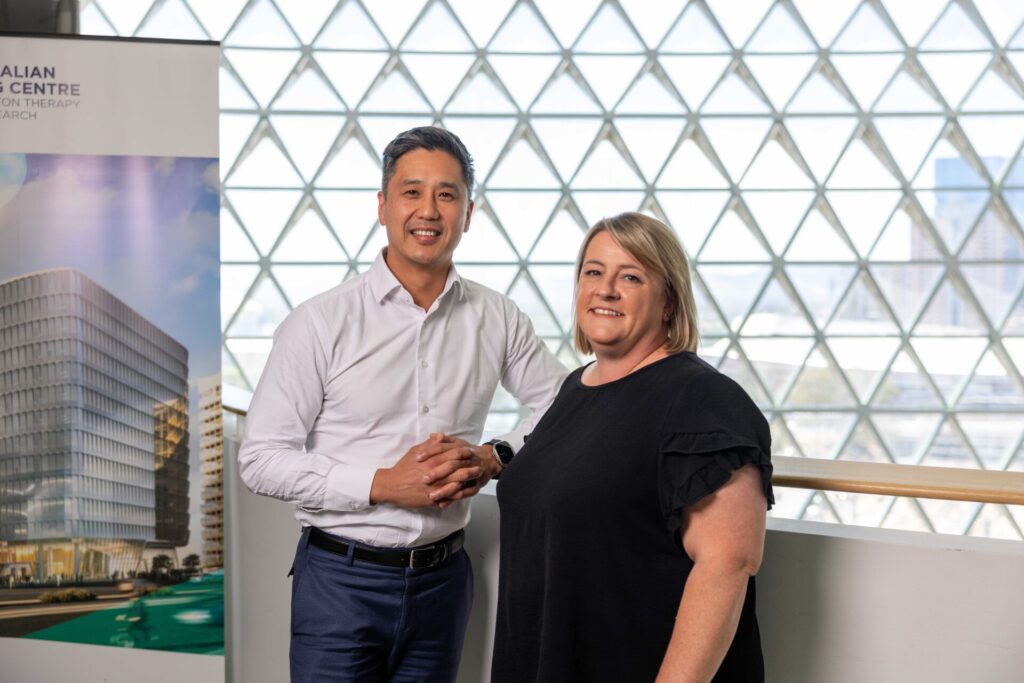
“The nurses at the RAH Radiation Oncology Department have been vital in ASPIRE’s rapid growth, which is attracting significant attention from the cancer treatment community,” said ASPIRE Registry Project manager and Principal Investigator, Kelly Skelton (pictured left, with A/Prof Hien Le).
A/Prof Hien Le, RAH Department of Radiation Oncology Head of Research and ASPIRE Chief Principal Investigator, said recruitment began in April 2022 but was initially only for people whose treatment was included on the PBT Medicare Benefits Schedule (MBS).
“In January of 2024, we expanded ASPIRE to include non-MBS treatment for conditions that are predicted to benefit from proton therapy as future evidence emerges. This has seen a significant increase in recruitment at the RAH,” he said. “We have gone from recruiting a few patients each month to consistently three or more per week.”
It is hoped the registry will provide data on long-term effects and disease control outcomes for patients having different types of radiation therapy, to help inform future Australian Government decisions about funding of proton beam therapy.
Read more about the ASPIRE trial.
Related Post
TROG Member Prof Paul Keall’s innovative research recognised in two Premier’s Awards
LATEST NEWS; 26 November 2025 Medical physics researcher and
TROG collaboration sees international skin cancer trial open in Australia
LATEST NEWS: 23 October 2025 TROG Cancer Research has
